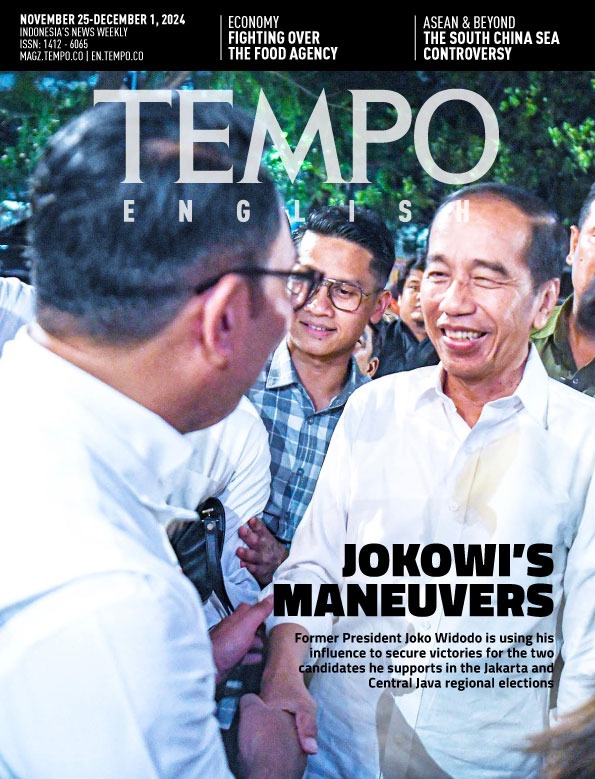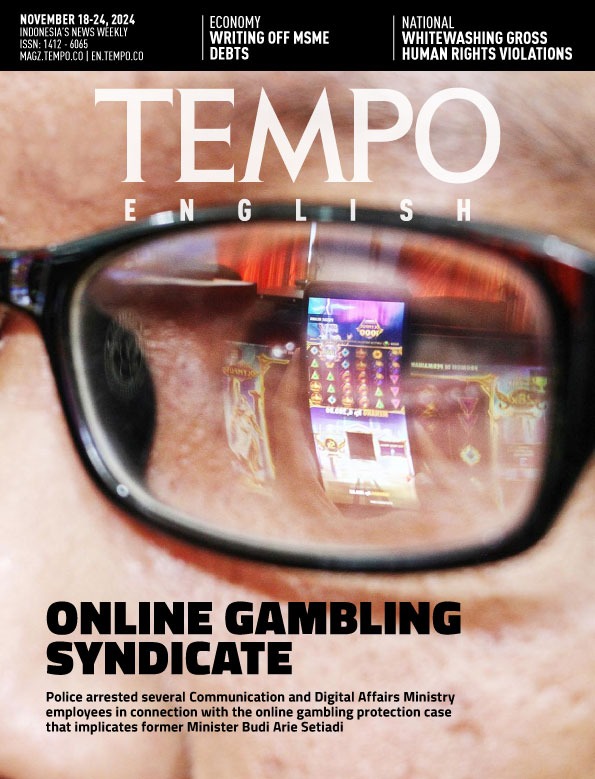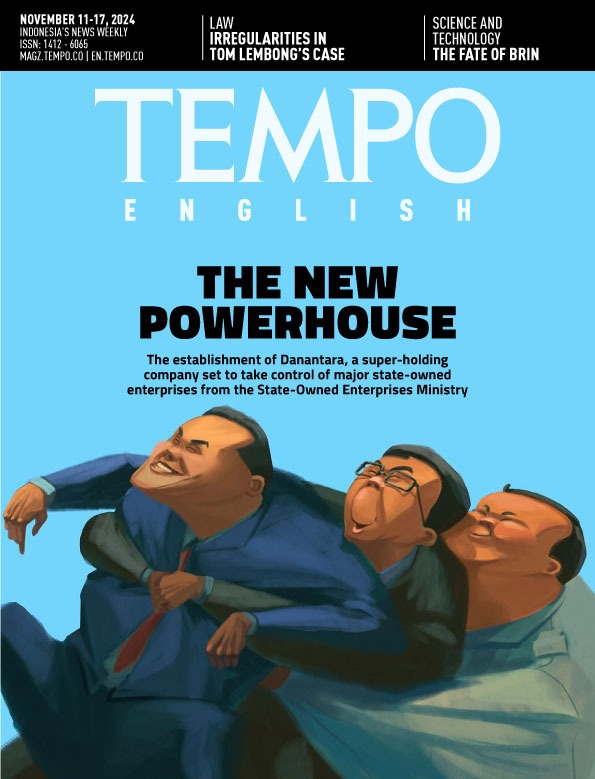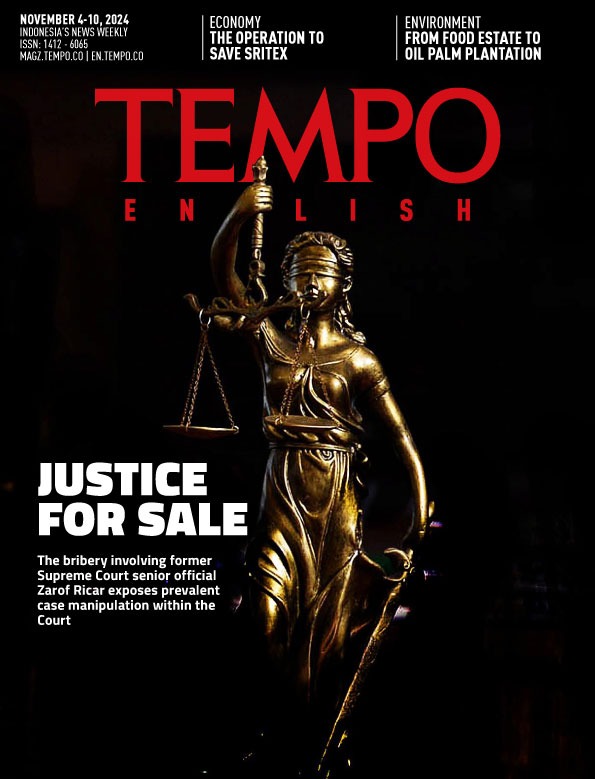Law Destroyed in the House
Tuesday, May 26, 2020
arsip tempo : 173302095549.
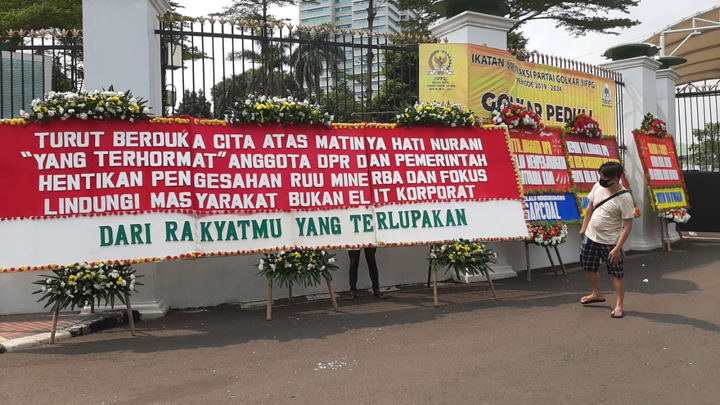
THE condolences wreaths lined up in front of the main parliamentary building in Jalan Gatot Subroto in Jakarta on Tuesday, May 12. The senders ranged from student associations grouped in Mahasiswa Bersama Rakyat (Students with the People), to ocean and fisheries activists called the Bahari/Kiara Community.
On noon that day, a plenary meeting was on the way at the House of Representatives (DPR). Several days prior to that, rumors spread tha
...
Subscribe to continue reading.
We craft news with stories.
 For the benefits of subscribing to Digital Tempo, See More
For the benefits of subscribing to Digital Tempo, See More





